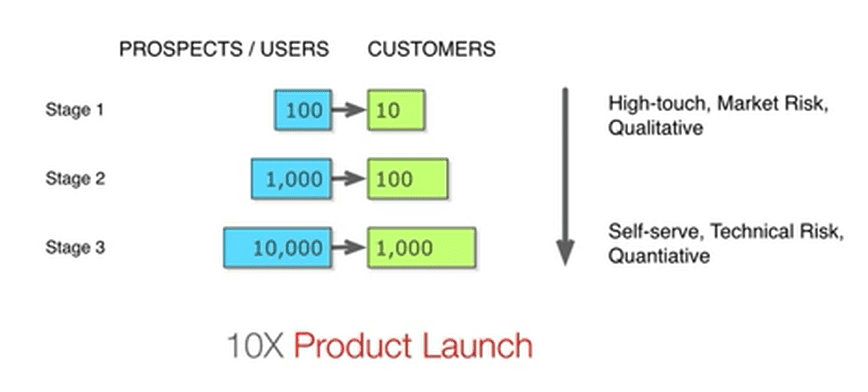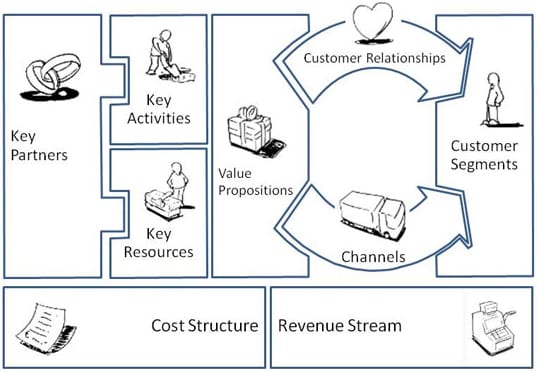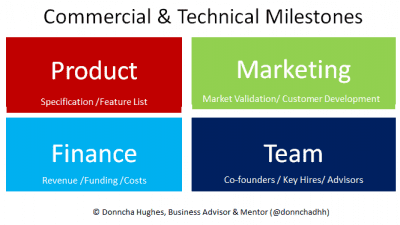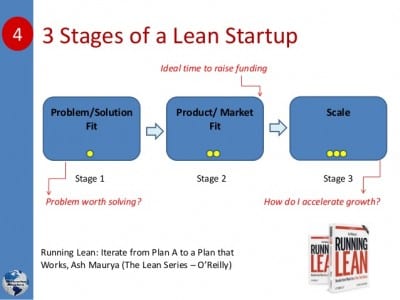
I recently delivered a one day workshop as part of IT Tralee’s New Frontiers Phase 2 programme entitled, ‘Goals & Milestones for Growth-Focused Businesses’. The aim of the session was to discuss goals for each of the participant business and to help them identify milestones to be prioritized among the many competing demands for their time and attention. Sessions such as this assist participants to communicate both their progress to date and the potential of their business to Enterprise Ireland and other potential investors. These are some of the key points we covered.
Starting point: hitting milestones is extremely important for early-stage investors
The calibre of the team driving a new business is very important in determining an investment decision. This is evaluated both in terms of career to date and track record with the current business of the collective team. Progress to date can be judged by viewing milestones achieved and quality and credibility of the plan going forward: has the business achieved market traction?
Enterprise Ireland gives 10% of the marks during the first phase of the evaluation of Competitive Start Fund (CSF) applications towards the ability to deliver key commercial and technical milestones; as they define it:
Looking for a well-defined strategy and roadmap with very clear achievable and measurable technical and commercial milestones.
With the growing popularity of tranched funding (financing agreement in which the agreed upon sum is advanced in stages depending on achieving specified targets or milestones), setting ambitious yet realistic and deliverable milestones is a hugely important issue for startup promoters at every stage of their development.
So what is traction?
According to Gabriel Weinberg and Justin Mares, (Market) Traction is quantitative evidence of customer demand. The book defines it as:
A sign that something is working – if you charge for your product, it means customers. If your product is free, it’s a growing userbase.
The book Traction: A Startup Guide to Getting Customers talks about the power of setting Traction Goal(s) – this could be 1,000 paying customers, 100 new daily users, or 10% of your market.
What is a milestone?
A milestone is a significant achievement toward a major goal by which project progress can be measured, in this case business success. Generally they build – later milestones are dependent on earlier milestones, representing something of value being completed. So any discussion of milestones requires an understanding of the stage of development of your Startup.
 Ash Maurya’s Three Stages of a Startup
Ash Maurya’s Three Stages of a Startup
The 3 Stages of a Startup is a perfect framework to set milestones in context.
The following milestones are implied by Lean Startup:
To use fast, iterative development practices to:
- Validate core hypotheses (customer problem-solution).
- Develop the Minimum Viable Product (MVP)
- Achieve Product-Market fit
- Produce a development and marketing roadmap for scaling
Product-market fit
Accordingly, advocates of Lean Startup describe Product-Market Fit as a critical milestone. This is defined as being when a product shows strong demand by passionate users representing a sizeable market.
Achieving Product-Market fit requires at least 40% of users saying they would be “very disappointed” without your product… Sean Ellis, Lean Startup Marketing

The Startup Pyramid sees the achievement of Product-Market Fit as a prerequisite before significant resources is invested in marketing and sales to scale the business.
 Ash Maurya’s 10x Product Launch
Ash Maurya’s 10x Product Launch
Ash Maurya sets a challenge for very early-stage businesses to get 10 Customers, and then to get 10 times or 100 customers, and so on.
The Business Model Canvas
Appropriate commercial and technical milestones should emerge from the startup Business Planning activity.
The ideal tool to list and test your business assumptions is the Business Model Canvas, which identifies 9 building blocks to a business.

An evolving business
While your traction goal, stage of development and business model will determine appropriate milestones, it is also very important to understand that your business model will evolve over time. Paul Graham advises businesses to do things that don’t scale.
Pulling it all together: The Milestone Mix
Every startup business founder and team – where ultimate responsibility lies – must focus on a small number of stage appropriate priorities to bring their business to the next level. SMART goals are called for – goals must be Specific, Measurable, Attainable, Realistic and Timebound.
 A balanced set of goals is also required. I suggest that the balance of any startup business can be evaluated in terms of balance across four areas: Product, Marketing, Finance and Team – which I refer to as the Startup Milestone Mix.
A balanced set of goals is also required. I suggest that the balance of any startup business can be evaluated in terms of balance across four areas: Product, Marketing, Finance and Team – which I refer to as the Startup Milestone Mix.
I suggest that startup promoters should set high-level goals in each of these areas. It should also be part of their job description to ensure that the business is developing in a balanced fashion – using this as a high level framework allows a business to judge if sufficient attention is being given to all critical areas of the business.
For New Frontiers and Enterprise Ireland, the critical milestones to exhibit traction relate to: intellectual property, early reference customers, route to market, internationalisation, engagement with investors, and building a core and non-traditional team – as appropriate to the stage of development of your business.
My conclusion and Call to Action
As Lean Startup says: Life’s too short to build something that nobody wants. Your job, with the support of your New Frontiers network, is to build a business, not just a product. It is all about gaining market traction.
Set goals and prioritise milestones that work for your business; that excite you and act as a calls to action for investors, potential employees and other stakeholders. I hope that you find this article of value as you set about this task!
[Some related articles by Donncha (external sites):
How To Write Your ‘Job Description’ As A Startup Promoter
My favourite Startup Marketing Books for Fast Growth Businesses
About the author
 Donncha Hughes
Donncha Hughes
Donncha Hughes is a former incubation centre manager and has worked with startups for almost ten years. A big advocate of Lean Startup, his areas of expertise include: marketing, sales, business models, supports for business, business plans and financial projections. An EI mentor and member of the CSF Evaluation Panel, Donncha specialises in working with early stage startups.
 Ash Maurya’s Three Stages of a Startup
Ash Maurya’s Three Stages of a Startup Ash Maurya’s 10x Product Launch
Ash Maurya’s 10x Product Launch Donncha Hughes
Donncha Hughes








